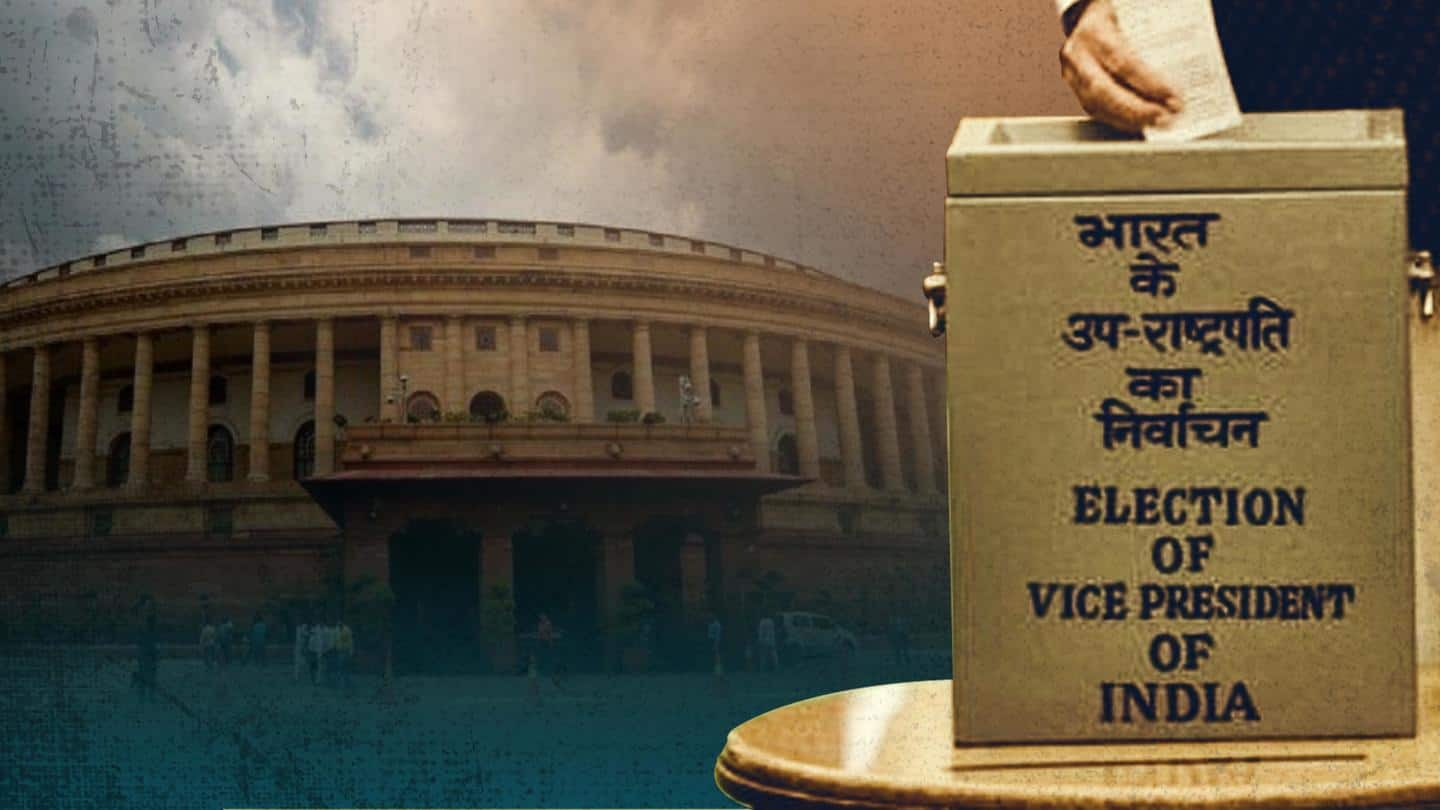
#NewsBytesExplainer: How does India elect its vice president?
What's the story
Vice President M Venkaiah Naidu's term will end on August 10 and according to the Constitution, an election to fill the vacancy must be completed before the expiration of the term.
The Election Commission issued the notification for the election of the 16th vice president on Tuesday.
The polling is scheduled for August 6, and the last day to file nominations is July 19.
Context
Why does this story matter?
The vice president of India is the ex officio chairman of the Rajya Sabha.
In the event of the death of the president of India, or their removal, resignation, or otherwise, the vice president would be the acting president until a new president is appointed.
Unlike the president's election, MLAs are not part of the electoral college for the vice president's election.
MPs
Members of electoral college elect vice president
According to Article 66 of the Constitution, the vice president is elected indirectly by an electoral college consisting of members—both elected and nominated—of both houses of Parliament, i.e., 788 members.
The voting is done in accordance with the system of proportional representation by means of a single transferable vote and the value of each Member of Parliament would be one.
Details
Supreme Court decides on any election-related dispute
As per the proportional representation by means of a single transferable vote, an MP has to mark preferences against the names of the candidates.
An elector can mark as many preferences as they want to on the ballot paper.
Any dispute related to the election of the president or vice president of India is decided on by the Supreme Court.
Eligibilty
Who can become VP of India?
Any Indian citizen who has completed 35 years of age and is qualified for election as a member of the Council of States is eligible to be elected as the vice president of India.
They will hold the office for a term of five years or "shall, notwithstanding the expiration of [their] term, continue to hold office until [their] successor enters upon his office."
Security deposit
Candidate can file a maximum of four nomination papers
A candidate can file a maximum of four nomination papers and is also required to make a security deposit of Rs. 15,000 to the Reserve Bank of India.
The candidate can withdraw the nomination on or before the last date to do so.
The Constitution also mentions that no political party can issue any whip to their MPs for voting in the VP election.